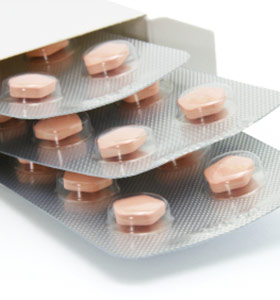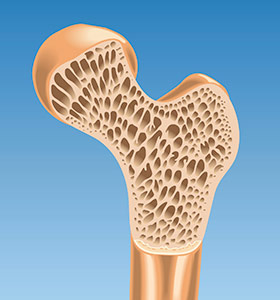The discovery of prednisone in the 1950s revolutionized the treatment of arthritis.
Here are some facts you should know about prednisone
1. Prednisone Has Been Around for More Than 50 Years
Since then, it has been the used in the treatment of dozens of other conditions, such as asthma, arthritis, lupus and multiple sclerosis. It has helped save the lives of many people. But like every drug, its good points need to be weighed up against its not-so-good points.
2. Prednisone is Inexpensive
Prednisone has long gone off patent so shouldn’t leave too much of a hole in your wallet. Some common brand names are Deltasone, Prednicot, Rayos and Sterapred. Your drugstore may stock different brands from time to time, which may mean that sometimes the colour or look of your prednisone may change.
 3. How Prednisone Works
3. How Prednisone Works
Prednisone belongs to a group of medicines called corticosteroids. These medicines mimic cortisone which is a naturally occurring substance released by our adrenal glands in response to inflammation and stress. Prednisone controls inflammation by suppressing our immune system and is four times more potent than cortisol at decreasing inflammation.
Prednisone is NOT the same as anabolic steroids, used illegally by body-builders to increase muscle mass.
 4. Prednisone is a Workhorse
4. Prednisone is a Workhorse
It's used for asthma, allergies, skin rashes, inflammatory bowel disorders, and some forms of arthritis. While experts may not know the exact cause of some of these conditions, they do know that they are all associated with inflammation. For example:
asthma is a chronic inflammatory disease of the airways
symptoms of an allergic reaction are the result of excessive inflammation caused by an over reaction of the immune system.
Prednisone helps in the treatment of these conditions by dampening down this inflammation.
 5. Dosing Schedules Vary
5. Dosing Schedules Vary
Prednisone dosing may be complicated and not uncommonly start with a higher dose which is gradually reduced over days to weeks. There is a fine line between too much or too little prednisone.
Never take more prednisone than your doctor has recommended.
Never stop prednisone suddenly if you have been taking it for a long period of time.
Never start another course of prednisone without first discussing this with your doctor.
Always follow instructions.
 6. Prednisone Can Irritate the Lining of Your Stomach
6. Prednisone Can Irritate the Lining of Your Stomach
Prednisone should always be taken with a meal. If your belly still feels sore after taking prednisone with food, try taking an antacid. If the discomfort persists or gets worse, talk to your doctor.
You are also more likely to get stomach ulcers if you take prednisone in combination with anti-inflammatories or aspirin. If you are prescribed these medicines, ask your doctor about protective agents that can reduce this risk.
 7. Take Prednisone With Food and According to Directions
7. Take Prednisone With Food and According to Directions
Adrenal gland suppression is when your body stops producing cortisol, and it can happen with continual dosing of prednisone. If you are on daily prednisone, experts recommend taking the dose in the morning, to reduce this risk. Taking prednisone too late in the evening can cause sleeplessness and insomnia, too. Be sure to take with food.
Prednisone has long-lasting effects and is usually prescribed once daily. Occasionally, people on higher dosages are instructed to take it twice a day for short periods of time before dropping down to just a single dose.
 8. Withdrawal Symptoms With Prednisone?
8. Withdrawal Symptoms With Prednisone?
This doesn’t mean that prednisone is addictive. Rather it means that it can just take a while to kickstart your body back into producing cortisol again, if you have been on prednisone for longer than two weeks. Withdrawal symptoms can range from severe fatigue to weakness, body aches, joint pain, and difficulty sleeping. Talk to your doctor about slowly stopping prednisone if you need to discontinue its use.
 9. Prednisone Ups Your Infection Risk
9. Prednisone Ups Your Infection Risk
Almost every medicine has side effects and prednisone is no exception. Infections are more common while on prednisone because it suppresses your immune system. Prednisone may also cause sleeplessness and affect your moods.
People with diabetes may find their blood glucose control is not as good as it usually is if they are taking prednisone.
 10. Side Effects of Prednisone Can Be Severe
10. Side Effects of Prednisone Can Be Severe
Long-term use of prednisone may lead to bone loss and osteoporosis. It can cause changes in the distribution of body fat which together with fluid retention and weight gain may give your face a moon-like appearance. Stretch marks, skin thinning, and excessive facial hair growth are also not uncommon. Women who are pregnant or planning a pregnancy should let their doctor know before they take prednisone, and it is not recommended in women who are breastfeeding a baby.
It is a good idea to wear a medical alert tag or carry a Steroid Card if you need to take prednisone long-term.
 11. Weight Gain is Common
11. Weight Gain is Common
Prednisone makes you hungry and weight gain is a common side effect. The higher the dose and the longer the treatment, the more likely you are to put on weight. You can control fluid retention by eating a diet low in sodium and eating more foods that contain potassium such as bananas, apricots, and dates. A diet high in protein and low in carbohydrates may make you feel fuller for longer, making you less likely to overeat.
 12. Prednisone May Interact
12. Prednisone May Interact
Prednisone can interact with a number of different drugs, including OTC and some herbal preparations. Let your doctor know about all the medications you take. The most common interactions are with anti-inflammatory agents, anti-infective agents (such as ciprofloxacin, some HIV medicines), drugs that suppress the immune system, “water” pills, and blood thinners, but there are many more. If you are worried that some of your medicines may be interacting, talk with your doctor or pharmacist.
Source: drugs.com







